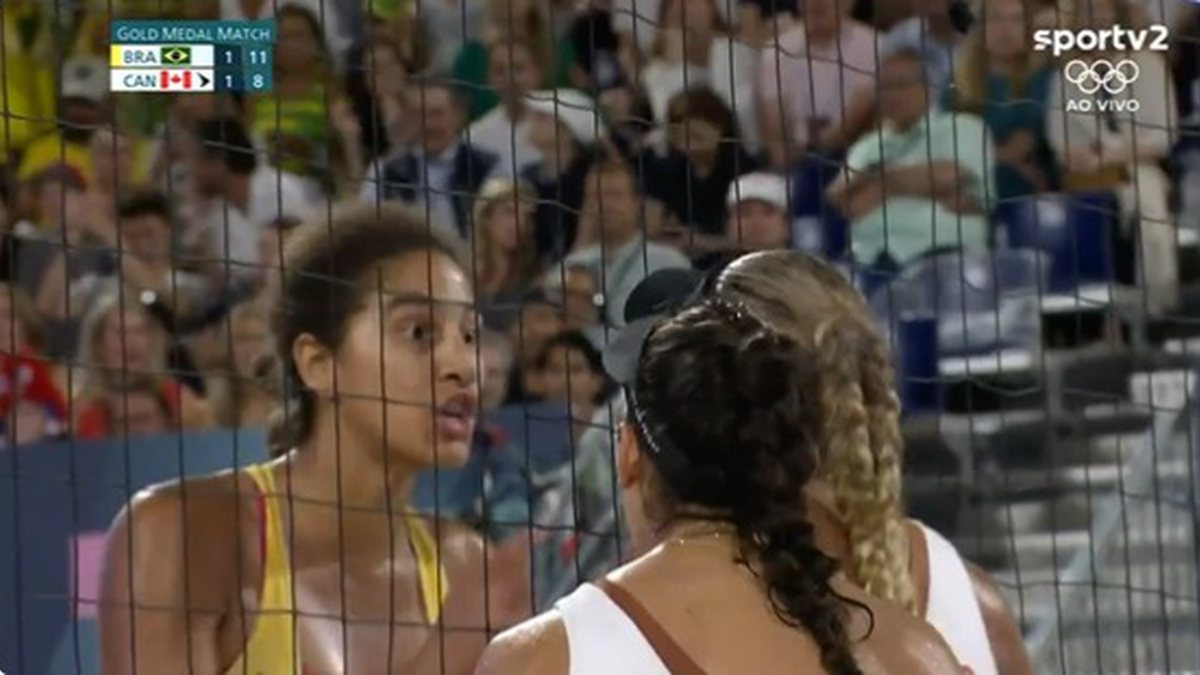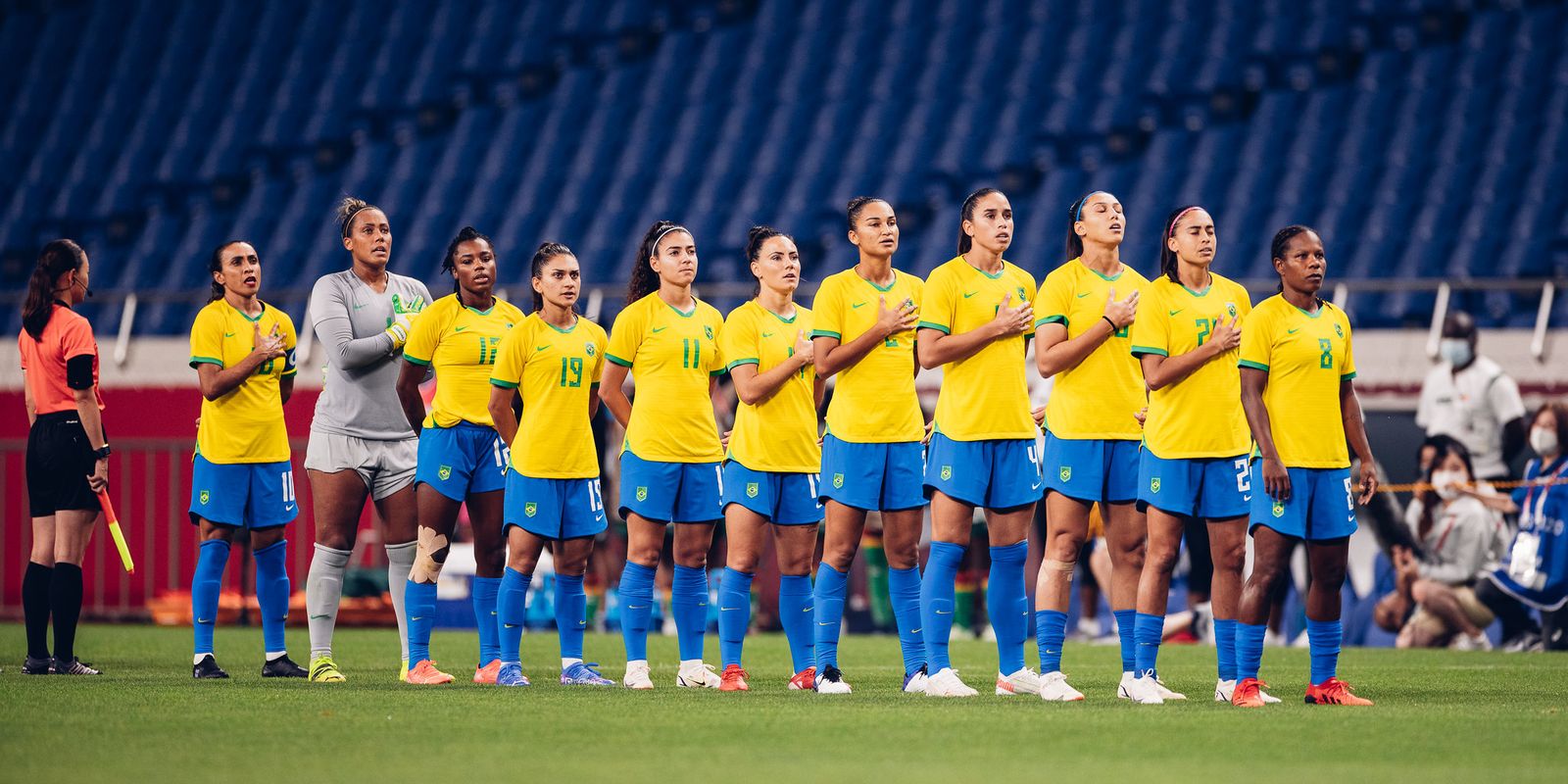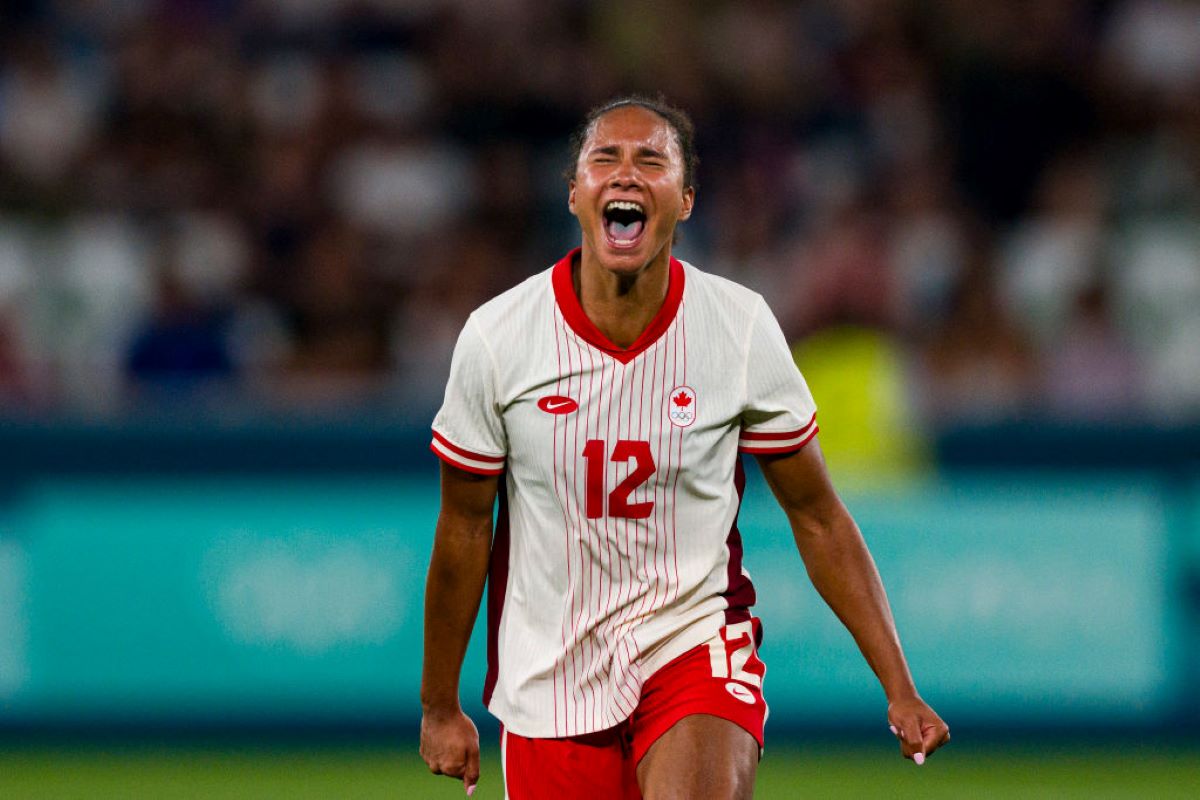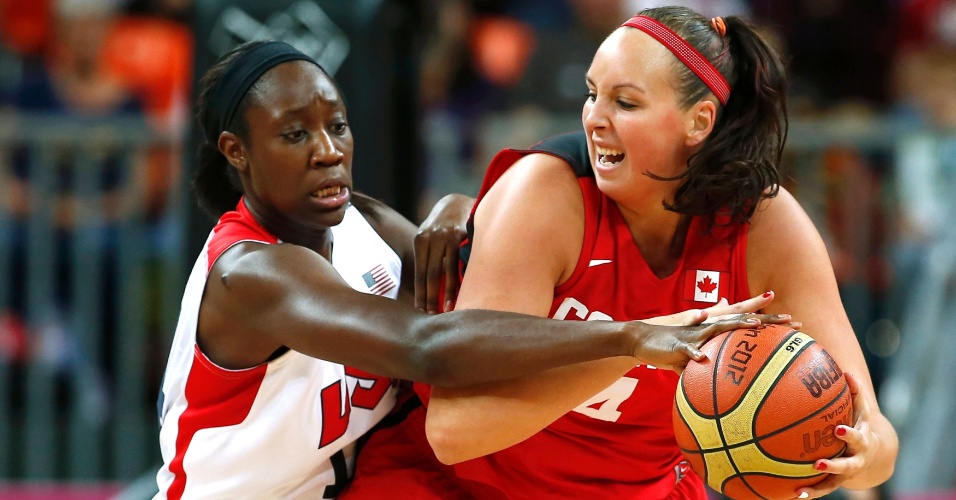Every four years the debate over coaches at the World Cup revolves around whether they were players or not, that second case, like that of Canada’s national team John Herdman, who was criticized in the country, and is not in the group of a third of the commanders who participated in the tournament as athletes.
The national team commander himself, who played football non-professionally in England, the country where he was born, admitted there is weight in not having been a top athlete in the sport.

“You’re a good coach, but you’ve never had the experience of playing in front of 60,000 people so you’ll never reach the top level,” the former New Zealand women’s coach also said. from Canada. than Sunderland’s youth teams.
At the World Cup in Qatar, there are many coaches, led by Frenchman Didier Deschamps, who won the tournament as player and captain in 1998, and as coach four years ago, via Tite, a talented midfielder. who had to end his career through injury, and rookies like Herdman.
Absolutely, ten commanders were in the tournament as players, while 11 go to the Cup for the second time as coaches.
Among those who wore cleats, there are more defenders and defensive midfielders. Only one of them was a goalkeeper, Carlos Queiroz, from Iran, in the distant past, far from professionalism in Mozambique. Additionally, there are four forwards.
Without a doubt, the most curious case is that of Herdman, who left the prestige of being one of the best coaches in the world in women’s football, to take over for the Canadian men’s national team.
Discover the profile of the coaches of the 2022 World Cup:
A group:
QATAR: Félix Sánchez (Spain) – At 21, he was already working in Barcelona’s youth divisions. He left for Qatar in 2006, arriving at the Aspire Academy for talent training, later joining the federation and taking over the national team in July 2017.
ECUADOR: Gustavo Alfaro (Argentina) – In the short trajectory of four years as a professional player, he was a midfielder who came to play for Atlético Rafaela, in the Argentine second division. He has been a coach since 1992 and took over the Ecuadorian national team after leaving Boca Juniors.
NETHERLANDS: Louis van Gall – He was a discreet midfielder who, without a place at Ajax de Cruyff and Neeskens, moved to Belgium and then had a better phase at Sparta Rotterdam. He retired at the age of 35 and had a chance as an assistant at Ajax, where he established himself as a coach. This is his third stint with the Netherlands national team and will play his second World Cup.
SENEGAL: Aliou Cissé – As a midfielder, he was part of the surprising selection that beat France at the opening of the 2002 World Cup. He will go to the second Cup as a coach, after having been in the first phase with the Senegalese, who received the competition’s Fair Play Award.
Group B:
ENGLAND: Gareth Southgate – Historic defender for the England national team, he played in the 1998 and 2002 World Cups and is heading for his second World Cup as a manager, after guiding England to fourth place in Russia four years ago.
WILL BE: Carlos Queiroz (Portugal) – For six years as a young man he was a money changer for Ferroviária de Nampula, Mozambique, but ended his career at 22 when he moved to Portugal. He is going to the second Cup with Iran, after the 2014 edition, in Brazil.
WE: Gregg Berthalter – Defender who played 15 years in Europe, appeared in the 2002 World Cup and was called up for the 2006 edition. First Crystal Palace player to be called up for the tournament, he will make his managerial debut .
WALES: Rob Page – Ryan Giggs’ replacement on the Welsh bench, was a defender who played 41 games for England and played in over 500 Premier League games.
Group C:
ARGENTINA: Lionel Scaloni – Started as a right-back and moved up to midfield, a position in which he became an idol at Deportivo La Coruña. He was world under-20 champion and played in the 2006 Cup, in which he played one match. Four years ago, in Russia, he was part of the technical staff of Jorge Sampaoli.
SAUDI ARABIA: Herve Renard (France) – Defender who played with Zinedine Zidane in Cannes, but only played one game in the top flight of the French Championship. Goes to the second World Cup as a coach, four years after leading Morocco.
MEXICO: Gerardo Martino (Argentina) – A skilful midfielder, he is an idol of Newell’s Old Boys and even played in the Under-20 World Cup in 1981 with Argentina. He returns to the World Cup as a coach, having led Paraguay to the quarter-finals in 2010.
POLAND: Czeslaw Michniewicz – Nicknamed ‘Polish Mourinho’, he was a striker of little expression in the Eastern European country’s football. He took over the selection this year, replacing the Portuguese Paulo Sousa.
Group D
FRANCE: Didier Deschamps – Along with Zagallo and Franz Beckenbauer, he is one of three coaches to have won the Cup as a coach. From captain of the ‘Blues’ in 1998, he became commander in 2018, obtaining the same result, the title.
AUSTRALIA: Graham Arnold – He was a striker for the Australian national team, having been the country’s top scorer in 1986. He also played in the Netherlands, Belgium and Japan. He helped Guus Hiddink in the “Socceroos” participation in the 2006 World Cup and returned to the World Cup 16 years later.
DENMARK: Kasper Hjulmand – Right-back who had to retire from the field at the age of 26 after undergoing the ninth operation on one of his knees. An avowed admirer of Cruyff and Guardiola, he took charge of the Danish national team in August 2020.
TUNISIA: Jalel Kadri – A player for modest Tunisian clubs, he became interim national team coach in January this year and was hired after the dismissal of Mondher Kebaier. The classification of the Qualifiers, with a victory over Mali, raised him to the rank of idol.
Group E:
SPAIN: Luis Enrique – His versatility on the pitch took him to three World Cups, in 1994, 1998 and 2002. In the first of those, he ended up becoming an iconic image, when he was knocked down by the Italian Mauro Tassotti. He made history for starring in a move that for the first time saw FIFA use video to review referee markings.
COSTA RICA: Luis Fernando Suárez (Colombia) – Defender or defensive midfielder for Atlético Nacional, he was champion of the Libertadores Cup and the Interclub World Cup. Goes to the third World Cup, after captaining Ecuador in 2006 and Honduras in 2014.
GERMANY: Hansi Flick – Midfielder who made 104 appearances for Bayern Munich, only defended the German U18 side, having retired at the age of 28. He became assistant to Joachim Löw, responsible for strategy during the 2014 World Cup, won by the ‘Mannschaft’.
JAPAN: Hajime Moriyasu – He was a defensive midfielder who was eliminated from the 1994 World Cup, thanks to a goal conceded in the decisive match against Iraq in the Qualifiers. Took over for Japan’s senior team after a good job at the 2020 Olympics.
Group F
BELGIUM: Roberto Martínez (Spain) – Attacking midfielder, who played only one match in the first division of the Spanish Championship, when he played for Zaragoza. He then played in the English Premier League, where he later became a manager, starting at Swansea. He returns to the Cup, four years after leading the Belgians to third place in Russia.
CANADA: John Herdman- The most iconic name on the list, the 23-year-old physical education teacher was co-founder of a Brazilian football academy in Sunderland. He won an Olympic bronze medal with the New Zealand women’s team in 2012. He then reached Canadian football, first in the women’s national team and then in the men’s team.
MOROCCO: Walid Regragui – Former right-back of the Moroccan national team, he even played in the first division of the Spanish Championship. He rose to fame as a coach by leading Wydad Casablanca to the African Champions League title, until he reached selection to replace Bosnian Vahid Halihodzic.
CROATIA: Slatko Dalic – The defensive midfielder, who won the Yugoslavian Cup in 1984, never played for the country’s now defunct national team. As a coach, he finds the World Cup, four years after leading to the vice-champion, in Russia, four years later.
Group G:
BRAZIL: Tite – Technical midfielder, vice-champion of Brazil in 1986, with Guarani, retired at only 28 years old. In Qatar, he will have his second chance at the World Cup, after being eliminated in the quarter-finals, in a defeat against Belgium.
SERBIA: Dragan Stojkovic – One of the biggest names in Serbian football, having been a star as a player, president of the national federation and, later, coach. He participated in the World Cup as an athlete, in 1990 and 1998, first with Yugoslavia, then with Serbia and Montenegro.
SWITZERLAND: Murat Yakin – Defender and captain of Basel, he played in the German Championship and was a reference for the national team, along with his brother Hakan Yakin. He has played 49 games with the national team and has been a coach since last year.
CAMEROON: Rigobert Song – Defender and legend of the Cameroon national team, for which he made 137 appearances. He was the first player in history to be sent off in two different editions of the Cup – then he was joined by Frenchman Zinedine Zidane. In March this year, he took over as coach of the Indomitable Lions.
Group H:
PORTUGAL: Fernando Santos – Former defender, who made 161 appearances for the Portuguese Premier League, most of them for Estoril. Going to the third World Cup, after leading Greece in 2014 and Portugal four years ago.
GHANA: Otto Addo – He was born in Hamburg, Germany, where he made a career as a player, having played in the 2006 World Cup. He became the coach of the Ghana national team last September, hired from Borussia Dormund, where he worked in the football divisions.
URUGUAI: Diego Alonso – Sharp-nosed striker, runner-up in the Champions League with Valencia in 2001, he played just eight games with the Uruguayan national team. He will participate for the first time in a World Cup.
SOUTH KOREA: Paolo Bento (Portugal). A tireless midfielder, he played for the Portuguese national team in 35 matches, including three at the 2002 World Cup. The former Cruzeiro coach is making his tournament debut as a captain.

“Evil pop culture fanatic. Extreme bacon geek. Food junkie. Thinker. Hipster-friendly travel nerd. Coffee buff.”






:strip_icc()/i.s3.glbimg.com/v1/AUTH_da025474c0c44edd99332dddb09cabe8/internal_photos/bs/2024/x/2/N6XJkFRYWxJY6hAeUEtw/betty2.png)
